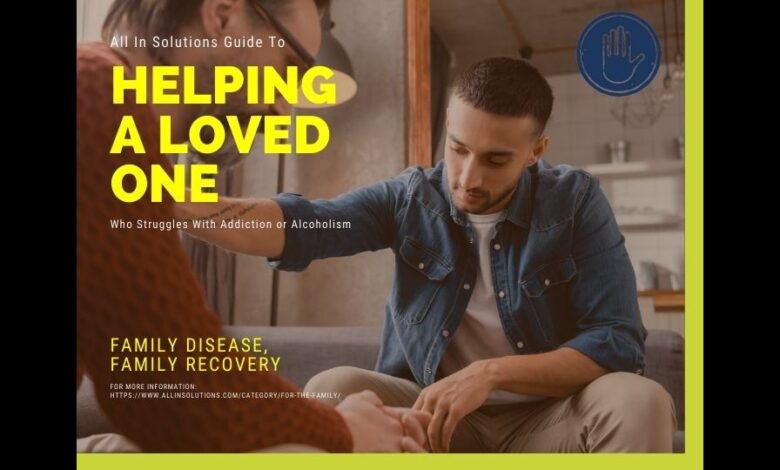Tips & Tricks for Supporting a Loved One Suffering from an Addiction

While helping a loved one who is battling addiction can be difficult, the road offers many chances for development and recovery. Equipping yourself with a few insider tips and tactics can help you traverse this journey and improve the quality of service you offer. Gaining knowledge about the intricacies of addiction and acquiring efficacious techniques can enable you to provide optimal care for your cherished one. Now, let’s look at some doable advice and strategies to support you and your loved one as they recover from addiction.
Self-soothing:
Give your physical and mental health the attention they need because your well-being is equally vital. Sharing your thoughts and feelings with loved ones, friends, or support groups is essential. Setting up sensible limits will keep you from becoming overwhelmed by the addiction of a loved one. By scheduling self-care activities like workouts, rest, and hobbies, you may rejuvenate yourself and maintain your resilience in the face of difficulties. Do not be afraid to get professional assistance or counseling if you are having trouble adjusting to the circumstances. You can help your loved one on their road to recovery more successfully if you take care of yourself.
Addiction as a Disease Recognition:
It’s critical to acknowledge that addiction is a disease while offering support to someone who is battling it. It is imperative to recognize that addiction is not a manifestation of a weak will or a personal shortcoming, but rather a complicated brain disease. You may encourage empathy and understanding for your loved one’s challenges by not putting blame or shame on them. Gaining knowledge about addiction and its consequences can aid in your understanding of the nature of this illness. Recall that people with addictions require understanding and compassion on their road to recovery. Therefore, it is important to provide support and encouragement instead of passing judgment.
Acquiring knowledge regarding drug use:
Acknowledging that there is a lot to understand about substance use disorders is crucial to providing your loved one with adequate support. Spend some time learning about this condition’s warning signs, symptoms, and accessible treatments. Keep yourself informed by following the latest findings and available resources about addiction. Consulting with healthcare providers or counselors might yield important information about how to support your loved one most effectively. Gaining insight into the intricacies of substance abuse disorders will enable you to provide more substantial assistance and constructively influence their road to recovery.
Steer clear of encouraging actions:
It’s important to exercise caution and not turn your love and comfort against a loved one who is struggling with addiction. Refrain from engaging in enabling activities that inadvertently facilitate their addictive habits and instead promote responsibility and accountability. It’s critical to strike a balance between showing them support and affection and making them answerable for their deeds. You may offer a supportive environment without contributing to their addiction by establishing and enforcing healthy limits. Even though it can be difficult, using tough love when it’s needed can be the most caring way to support your loved one’s healing.
Provide Assistance without permitting:
Helping your loved one requires realizing that you can support their recovery without condoning addiction. Urge them to get expert assistance and think about alternatives like counseling, support groups, or drug rehabs in Austin, where they can get all-inclusive care along with additional services. Offer helpful feedback and create a supportive environment that encourages healing and growth. Without condoning their addictive habits, you can assist your loved one’s recovery process by establishing boundaries and promoting accountability. Although your assistance is very important to their recovery, you must put their long-term health and well-being first.

Acquiring knowledge from errors:
Supporting the rehabilitation process of people grappling with addiction requires acknowledging that they need to learn from their mistakes. It’s imperative to leave room for growth and acknowledge that encountering challenges is a typical part of the process. Urge your loved one to accept accountability for their deeds and make the most of the lessons they can learn from them. By offering direction and support, you can assist them in overcoming obstacles and building the resilience required for a sustained recovery. Remember to support them and allow them space to develop and gain knowledge from their experiences.
Conclusion:
Since taking care of oneself and seeking assistance when needed is essential to your general wellbeing, you should prioritize doing so. Continue your education on addiction to gain a deeper understanding of your loved one’s challenges. Be understanding, avoid providing opportunities, and make them answerable for their deeds. Encourage them to get expert assistance and be there for them no matter what during their recovery process.







